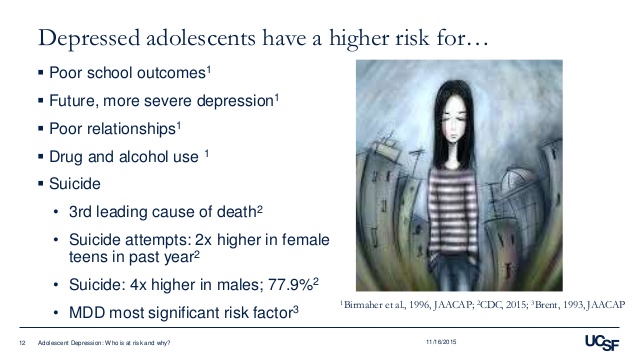Depression + suicide
Today we are going to study depression and suicide.
People often think of depression as an adult problem, not something that affects children, but children – especially adolescents – commonly suffer from depression. The condition interferes with their ability to perform well in school and develop and maintain relationships and can have lasting repercussions, especially if it goes unnoticed. What’s more, in children and adolescents, depression is often accompanied by behavioral problems, substance abuse, and/or other mental disorders. Unfortunately, in children and adolescents, depression can manifest differently than it does in adults, so parents are not always able to recognize the problem.
Let´s start with a short video showing what depression is:
This video demonstrates what life with depression looks like.
Now, diagnostic criteria for children vary from those we use for adults because disorders tend to show a little differently.
So now, you have enough ( maybe even too much, sorry about that) information about the topic and you may start watching our second film! And what is our second film?
It’s Kind Of A Funny Story, is a film, which is based on Ned Vizzini’s semi-autobiographical novel of the same name. The film serves up an unusual look at clinical depression. Craig Gilner is a determined New York teenager, striving for the best in life. So why is he repeatedly envisioning jumping off a bridge in the early hours of Sunday morning?
What were the consequences of comparison to peers and frequently unreachable targets across numerous subjects for Craig?
Based on this film, would you recommend attending psychotherapy?
Do you consider this film helping destigmatize mental health conditions like depression?
Which moment was the most difficult for you during the movie?
(or indeed, talk about any other interesting point you see in the movie :) )


